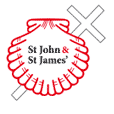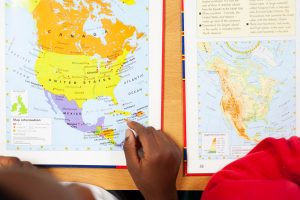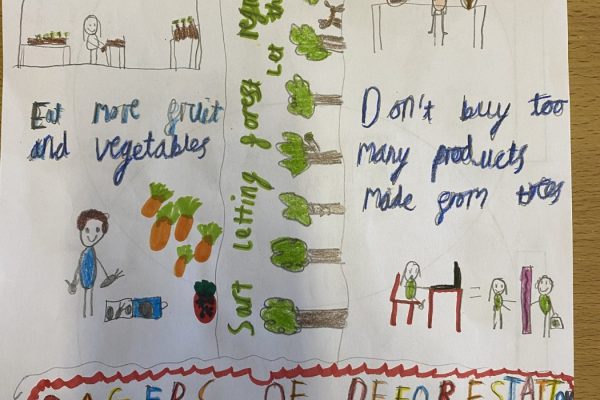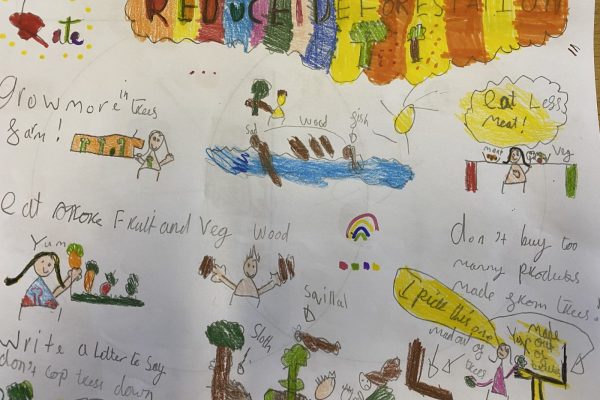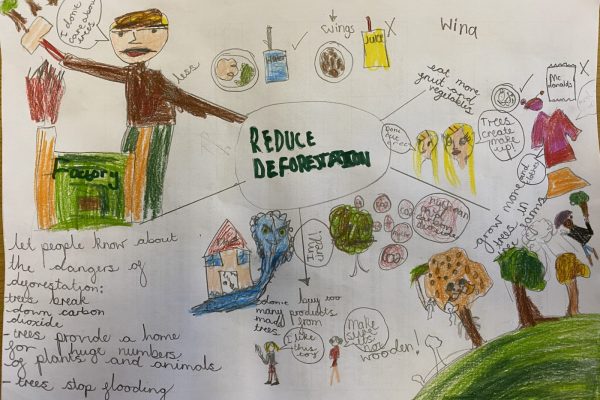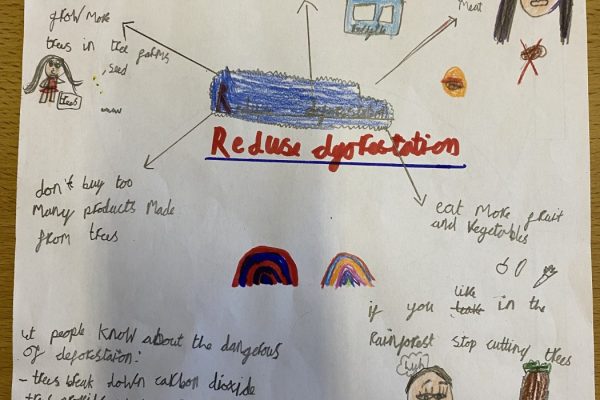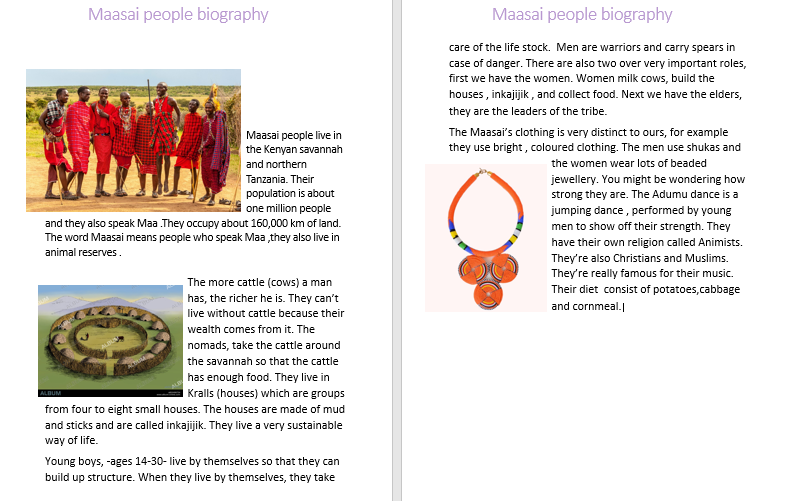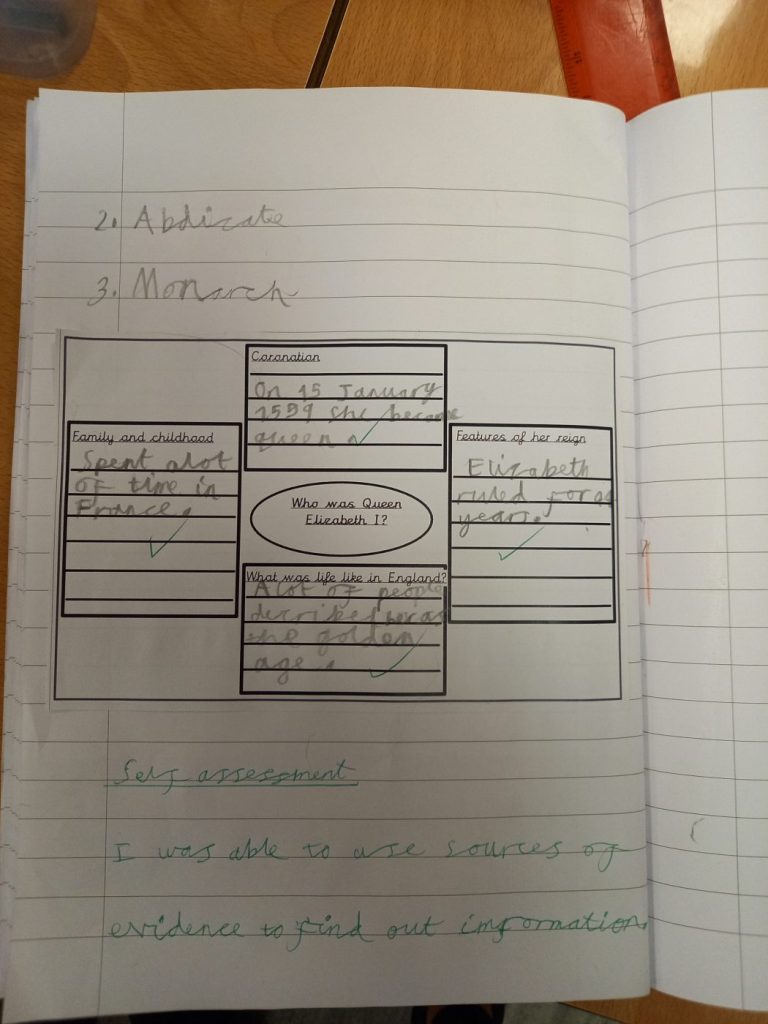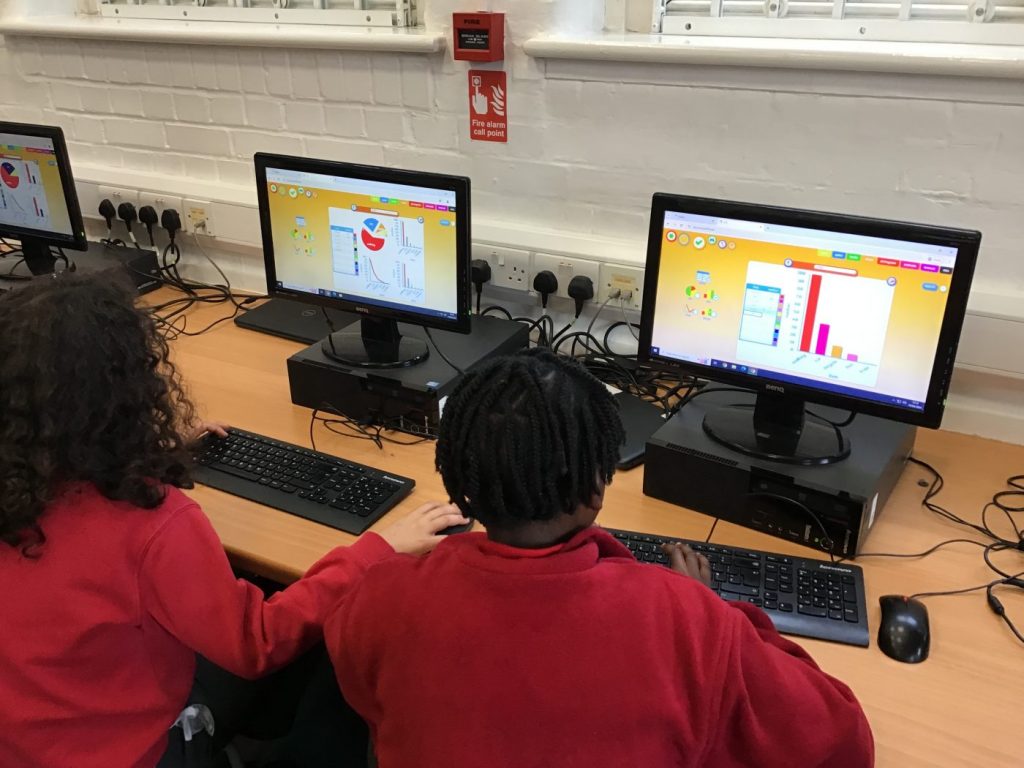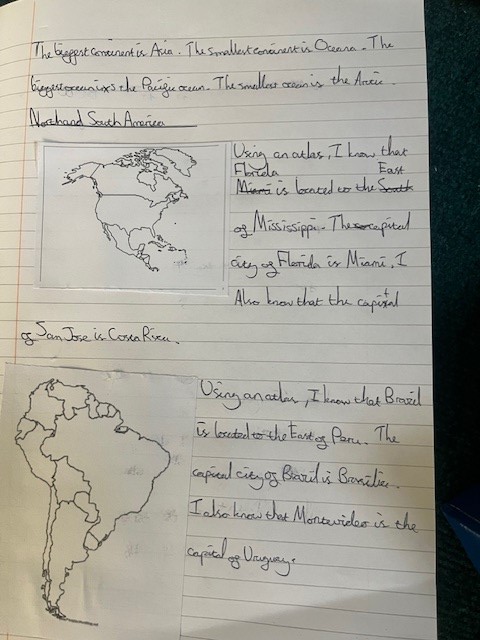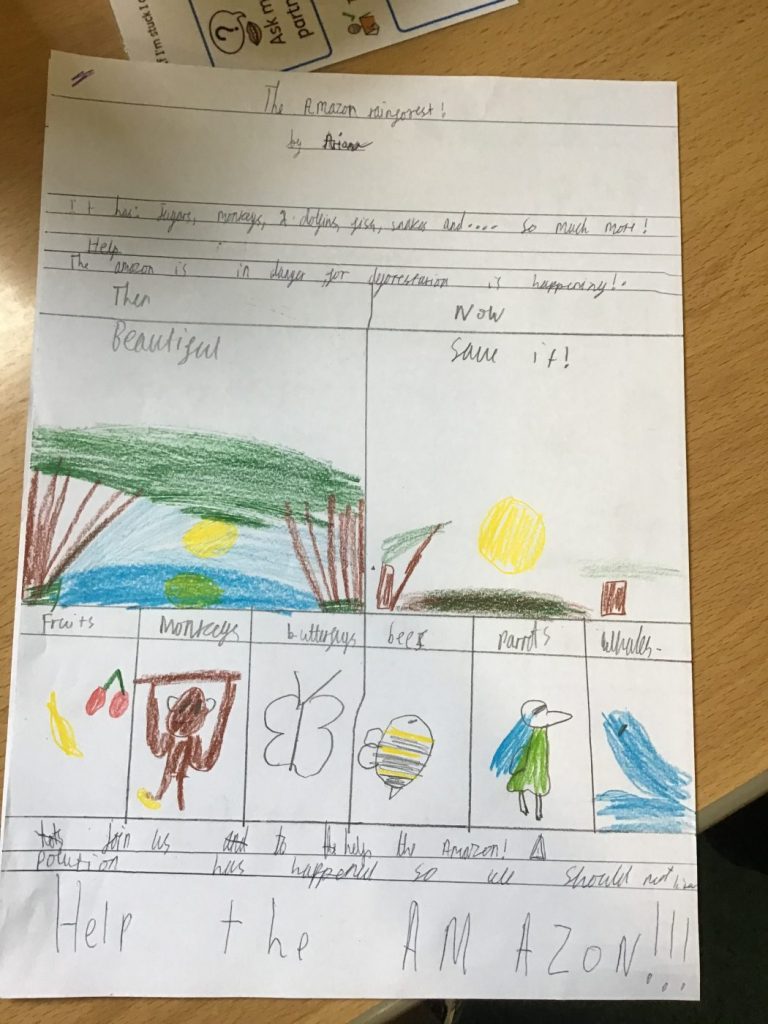Key Stage One
In Key Stage One, pupils study three history topics throughout the year, informed by the National Curriculum. Our curriculum has been designed to ensure there is a diversity of significant figures and periods of history that reflects the community we serve.
Teachers follow medium term plans and a knowledge and skills progression map when planning their history lessons, which have been carefully mapped out to ensure high quality teaching activities are used and there is distinct progression between year groups.
Each child’s book starts with a ‘history journey timeline,’ which supports the children in understanding this chronology of key events and eras studied across primary school. This document functions as a reference point in lessons, in order to consolidate pupils’ understanding of where important historical events and eras are placed in time.
Each history topic has a key question that links to it. For example: “How did The Great Fire of London change the way London looks today?” This question guides the sequence of lessons and children display their ability to answer the key question, as well as use vocabulary correctly in context, in an assessment at the end of each unit.
Knowledge organisers are provided at the beginning of each new topic, which outline the Tier 3 vocabulary the children will learn in the topic, as well as a timeline of the key events in this period of history, further supporting their chronological understanding. The knowledge organisers also outline how this history topic links to the pupils’ prior knowledge and their future learning.
In Key Stage One, the children secure their understanding of the difference between the past and present and use appropriate words and phrases relating to the passing of time. They begin to establish a chronological understanding of where the people and events they study fit within a chronological framework. The children in Key Stage One find similarities and differences between ways of life in past societies and compare those with the present.
In Key Stage One, children start to use and evaluate some of the ways in which we find out about the past and identify different ways the past can be represented.
Children in year 1 build up their understanding of the past by identifying changes within their living memory. They begin this process by reflecting on their own history and key events in their own life and the life of their peers. They use objects and photographs from their past to understand how artefacts and sources of evidence are crucial to providing us with clues about past events.
They progress to investigating events beyond living memory, which have had a significant effect on national life such as The Great Fire of London and changes during The Industrial Revolution, as well as studying the lives of significant individuals who have contributed to national and international achievements such as Mary Seacole and Greta Thunberg.
Knowledge is consistently revisited through knowledge recall activities. These are used at the beginning of each lesson. This consistent retrieval of knowledge ensures the children are consolidating their understanding and deepening their knowledge of topics studied.
